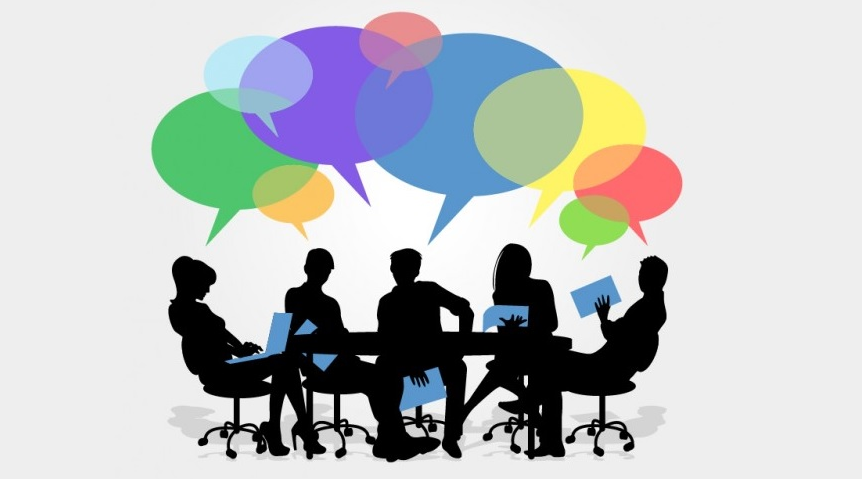Tips for Conducting a Successful Focus Group

A focus group is a small-group discussion guided by a leader or moderator. Responses given in a focus group are verbal, open-ended, relatively broad and qualitative. Similar to a survey, a focus groups used to help you learn what your members or customers think about your products, services, processes or brand and to guide your future product development or marketing.
Sure, surveys can be very useful for obtaining quantitative data, but they can’t capture a great deal about the qualitative or emotional aspects of what a member or customer thinks about your organization, products or services. Information obtained from a focus group is qualitative and more powerful than information obtained from a survey or from one-on-one interviews. Conducting a focus group gives you the opportunity to ask questions that can’t be easily fielded in a written survey. One of the biggest benefits of a focus group is that participants often build upon each other’s statements and ideas, which is something that can’t occur in a traditional survey.
Further, the focus group facilitator has the opportunity to immediately follow up with comments and/or questions that are brought up during the meeting. A good facilitator must be able to listen attentively, have adequate knowledge of the subject, be unbiased and believe that every participant has something to offer to the discussion.
Associations can conduct focus groups on a variety of topics such as: how members utilize their membership, which features of membership they value most, what they think about your communications platforms and what their experiences were like at your conferences, trade shows and events. Learning what members like and don’t like will help association leaders make changes and improvements moving forward.
Here are some tips to consider when planning and conducting a focus group and what to do after the focus group takes place.
![]()
Focus groups can yield a wealth of intelligence that traditional surveys cannot. ![]()
Take the time to do a focus group right — before, during and after the gathering takes place. ![]()
Make sure participants know your goals and objectives before getting started. ![]()
A skilled focus group facilitator will draw out introverts and prevent ramblers from taking over. ![]()
Focus Group Preparation
- Identify your purpose and objective – Determine what information you already have and what information you hope to obtain from the focus group. For example, are you looking to collect data about how useful members find our communications or are you more interested in learning about advertisers’ experience with those communication vehicles? Choose your interests and be sure to effectively address your research questions effectively. Your focal point should be on one particular group of participants in order to be the most effective and yield qualitative information.
- Meeting details – Members and exhibitors coming together at a trade show, conference or event can be a convenient time to host a focus group. Talk with the association about the availability of space and time at their event.
- Qualify your audience – Ask if particular members or advertisers would be more willing to participate. Ask key group/team members if they know individuals with whom they have built relationships with that they would like to engage.
- Incentivize – Offering an honorarium or payment for participation such as a gift card will increase participation. Provide a meal or refreshments because it helps create an informal, comfortable atmosphere.
- Prepare your questions – Focus on your goals and objectives when creating your focus group script. Keep the topic fairly narrow in order to collect qualitative results that you can put into an action. Remember, your focus group will be between one and two hours, and you want to give everyone a chance to offer their opinion.
- Recording – Decide if you are going to videotape or audio record your meeting. This elevates the need for an additional person to take notes but ensures you don’t miss or forget anything attendees say.
- Practice – Moderating and keeping control of the conversation is imperative to the success of your focus group. This can take some practice, so be sure to do a run through (or three) with another marketer or with others from your team. A dry run will also reveal any logistical aspects you need to improve upon before your real participants arrive.

Components of a Good Focus Group Script
It’s important to keep your script flowing in a way that makes logical sense.
- Introduction – introduce yourself. Thank people for coming! Explain the purpose for conducting the focus group and what your goals are. Describe how the meeting will proceed and how participants can contribute.
- Ice Breaker – set the tone by asking as easy question to help participants get to know each other, such as asking their names and what association and/or company they are with.
- Main and transition questions – begin asking the questions you have prepared, keeping the discussion flowing based on topic.
- Wrap up – thank participants for attending, participating and being engaged. Hand out the honorarium and try to shake hands with attendees as they leave.
Best Practices for Wording Focus Group Questions
When creating your questions, be sure to use open ended questions that encourage discussion. Here are some other things to keep in mind:
- Keep it conversational – keep your questions informal and worded in a manner that encourages natural conversation.
- Keep it simple – word your questions in a way that doesn’t make them sound complex and will be easily understood.
- Keep it short – maintain engagement and keep attention focused by using short, uncomplicated questioning.
- Keep it “one dimensional” – word your questions so that there is a one clear answer.
Ideas to Increase Focus Group Participation
Enticing individuals to show up and actively participate in a focus group can be a challenge. Here are some ways to help boost attendance:
- Branding – put your association’s name and branding on focus group invitations so potential participants know who is soliciting them. If a marketing research firm is assisting with your focus group and reaching out to your members, make sure your association’s branding is visible on its materials so your members know it is an official association-sponsored activity.
- Offer an incentive for early RSVPs – offer gift certificates for local restaurants, movie passes or maybe even discounted advertising.
- Door Prizes – offer a prize to every nth person who walks into the meeting space, or add the names of attendees into a drawing.
- Offer an honorarium – this is an incentive all participants receive. Think gift cards, tool sets, emergency car accessory kits, name-brand sunglasses, etc.
- Provide food and drinks – conduct the focus group around a “typical” meal time and have it catered. If your event is being held at what would be considered a snack time, offer an array of refreshments.
Overcoming Focus Group Obstacles
Focus groups are a great way to get immediate feedback, but putting a focus group together can be challenging. Here are some ways to overcome common focus group obstacles:
Have a dominant personality? This is typical in any group, there’s always one person who tries to dominate the discussion:
- Shift attention to other speakers, call on them by name to share their opinion
- Decrease eye contact.
Is someone being quiet/shy? It can be uncomfortable for some people to open up in a group setting:
- Explicitly invite this person to answer.
- Encourage them with smile and nods.
Don’t let a rambler derail the focus group:
- Wait for them to take a breath, and then quickly interrupt and call on another participant.
- Repeat the question and call on some else.
Yes, “groupthink” is a thing. It’s easy for one person to sway other members of the group to start thinking and feeling the way they do. It’s important not to let that happen:
- Ensure participants that their individual opinion is essential to the success of the focus group.
- Don’t allow a single group member to be the center of attention for very long.
- Call on individuals instead of allowing them to just speak out, for example,“Dan, can you tell us about your last conference experience?”.
After Your Focus Groups
Once the focus group has concluded, what to do you do with the data collected? Because focus groups include a smaller number of people than a survey, findings are not statistically representative and can only apply to those individual participants. However, you are still able to use the results to benefit your association. Here are some things you can do with your date after the meeting:
- Review your recording multiple times.
- Create a written summary of the meeting.
- Share information with the association.
- Use the data to create additional marketing strategies.
- Meet with team members to share the data collected.
In 2015, my colleague Kent Agramonte and I conducted focus groups with members of the National Association of College Auxiliary Services (NACAS) and Building Owners and Managers Association International (BOMA). The goal of these focus groups was to learn how we, the associations’ marketers, can better position our products to their members, how members interact with advertisers upon seeing an ad and to see what the appetite for new member communications would be.
We had a lot of buy-in from members and great interaction. Participants came from a diverse range of ages, genders and races. As interactive as the forum was, we did have some challenges. Some newer members were afraid to talk and we did have some more vocal members who tried to answer a majority of the questions and drown our other responses. We were able to overcome these challenges by acknowledging what was being said by the member and then directly asking other members if they agreed. For example,“Great point Pam. Jill, what are your thoughts on this question?” Conducting these focus groups was far easier than expected and we were surprised as to how willing to help and how open everyone was.
The information we gleaned from these focus groups was beyond our expectations. We walked away with information about how to improve our marketing outreach, sales outreach, digital platforms and editorial content. Within just one short hour we got thousands of dollars’ worth of information that provided better products for both our association clients and for their members at just a fraction of the cost of conducting a large-scale survey. The members of the focus group were ready to talk and we were ready to listen and as a result we all benefited.
Conclusion
Focus groups are a great way to learn about your members’ needs, wants and opinions of your organization in ways that traditional surveys cannot. Take the time to do a focus group the right way. The feedback with be worth the effort.


